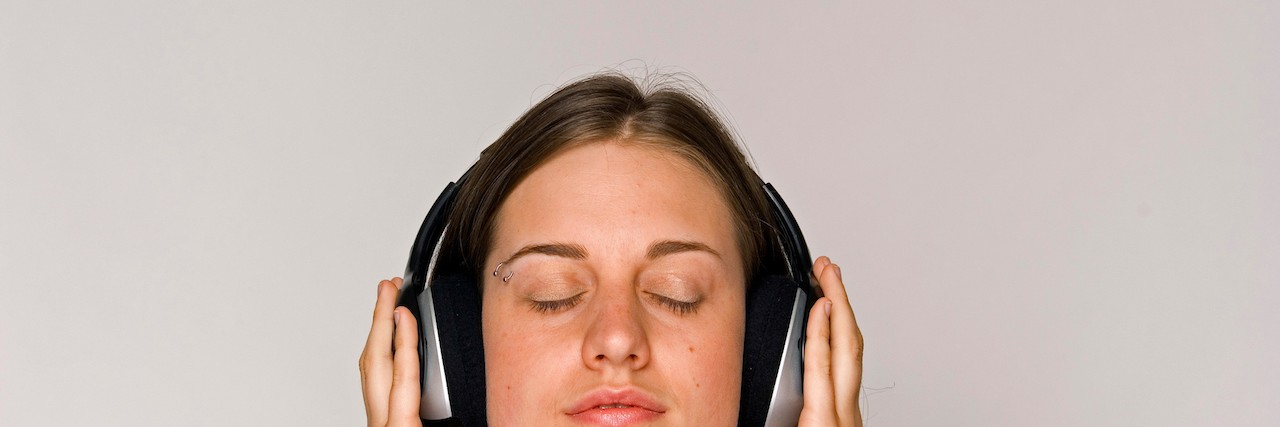My daily drive typically consists of the sun in my eyes, the coolness of the air conditioning and music loud enough to drown out the feelings I have toward a second round of treatment. I flip my Spotify to a fairly new song, “i hate u, i love you” by gnash featuring Olivia O’Brien. It has a beautiful melody and duet. However, it wasn’t until I found myself scrolling through the lyrics I connected the song to the reason I am in treatment.
Feeling used / But I’m / Still missing you / And I can’t / See the end of this
I feel manipulated by my anorexia. It pulled me in and pulled me down beneath the surface of normalcy. After a week back in treatment and writing this on a day off, I find myself missing my disorder and the control it seemed to give me. Yet, I pulled myself out of bed to eat both breakfast and lunch thus far.
It’s hard to see the end of a battle like this one. I didn’t think the end would come, especially after relapsing immediately out of treatment due to a lack of resources and support. Yet, on pure faith, I am keeping my head down and my feet moving through recovery, as I know in my heart that the end is near.
I hate you I love you / I hate that I love you / Don’t want to, but I can’t put / Nobody else above you / I hate you I love you / I hate that I want you
The last time I was in treatment, I wrote a letter to the eating disorder that ruined my life. I wrote about the things I lost because of it. I wrote about the skeleton it made me into by removing every single layer of who I truly was, leaving me with a pile of bones. In the same instance that I hated my disorder, I loved it. I hated that I loved it. I hated even more that I put my disease above everyone and everything else in my life. I hated anorexia, and I have endlessly hated the days I wanted it, both in the thick and thin of it.
I miss you when I can’t sleep / Or right after coffee / Or right when I can’t eat
Something people may not realize about eating disorders is how often we think about them when we have them. We miss them in recovery, but also seem to miss them every second we are eating and not acting upon them. There’s the lingering guilt when we miss them after completing an eight ounce cup of coffee with two sugars and three hazelnut creamers at the table on the unit. It’s a guilt that sticks around when we do eat and wish we hadn’t. I miss it in recovery, and I miss it in the thick of it. Yet, in re-nourishing my body, I am becoming less attached to the pain.
F*cked around and got attached to you / Friends can break your heart, too and / I’m always tired but never of you
When I first started with my eating disorder, I thought I could refrain from eating and not develop such an attachment to the actions. When I opened up about it, I thought I would be able to stop just by eating and keeping it a secret. Anorexia and I started to become close friends, but it broke my heart, killed my electrolytes and destroyed me from the inside out. My lack of nutrition exhausted me, but I was never tired of you.
Sometimes you gotta burn some bridges just to create some distance / I know that I control my thoughts and I should stop reminiscing
Returning to recovery and treatment after a relapse is much harder than it was the first go around. I was convinced and had everyone else convinced I would never return to my disorder. Walking through the doors of my unit seemed to leave everyone else as stunned as I was.
I hate the phrase “relapse is a part of recovery,” but for me, it was. The difference, however, is my relapse will not be my future. I am burning the bridges with my disorder, and leaving it where it belongs, in my past. I am leaving it with the negative thoughts and hope of obtaining the thin ideal. I am leaving my anorexia at my treatment facility, knowing that although my eating disorder was not a choice, recovery is.
If you or someone you know is struggling with an eating disorder, you can call the National Eating Disorders Association Helpline at 1-800-931-2237.

